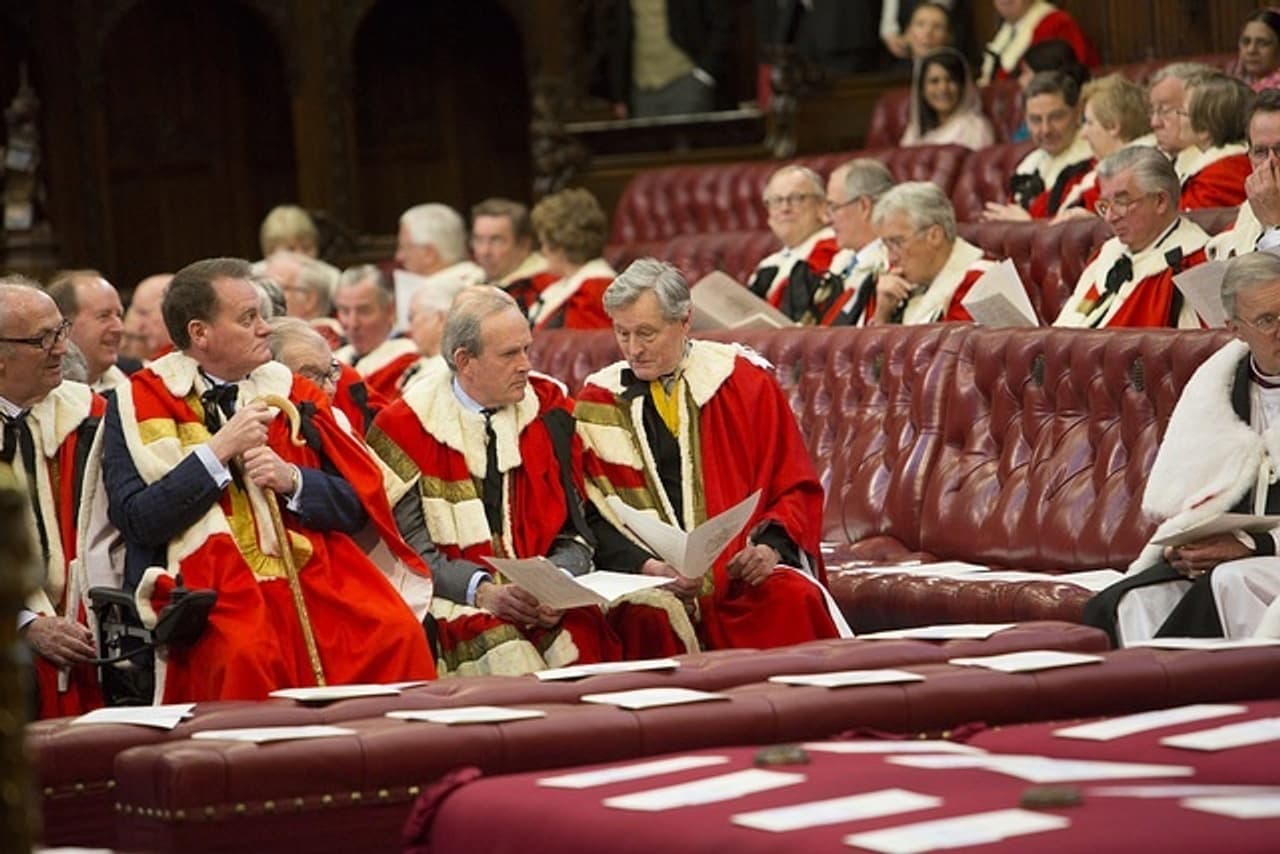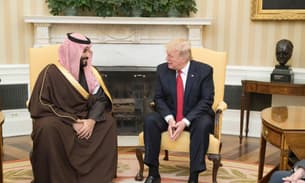
Standards Commissioner to decide if peer’s contract with Cayman Islands broke rules
Lord Blencathra (on left, holding crook) at the 2013 State Opening of Parliament
Image by UK Parliament
A senior Conservative peer is to face a second Parliamentary investigation into his lobbying activities on behalf of a Caribbean tax haven.
Lord Blencathra, also known as David Maclean, was investigated and cleared by the Lords Commissioner for Standards in 2012 for his work on behalf of the Cayman Islands government, following an investigation by the Bureau of Investigative Journalism.
At the time he told the commissioner, Paul Kernaghan, that he would never have agreed to lobby MPs and Peers as part of his work.
But earlier this week the Bureau revealed that a contract, signed by the former Conservative Party Chief Whip in 2011, stated that the services he was to provide included: ‘making representations to … members of Parliament’ in the Commons and Lords.
Lord Blencathra insisted that the lobbying clause was one of several which were never acted upon, that he had not carried out any lobbying on behalf of the government, and that what he told the commissioner was correct.
The new investigation may focus on whether or not the peer broke the Lords Code of Conduct by signing the contract, even if there is no evidence that he actually lobbied.
Related story: Lord Blencathra’s contract with Cayman Islands stated he would lobby MPs and Lords
The investigation follows a complaint by the Labour MP Paul Flynn based on the Bureau’s research, which was published in the Independent this week. Lord Blencathra also referred himself to the Commissioner.
In a letter to Mr Flynn, Mr Kernaghan wrote: ‘Lord Blencathra submitted a request that I investigate his behaviour on the basis of the article in The Independent. In accordance with the (Lords) Code of Conduct I have secured agreement of the Sub-Committee on Lords’ interest to investigate.
‘His request and your complaint are identical in substance. My investigation is proceeding on (that) basis.’
Lord Blencathra categorically denies any breaches of the House of Lords Code of Conduct and said he had not lobbied members of parliament when carrying out any of his duties for the Cayman Islands government.
‘I have referred myself to the Lord’s Commissioner for Standards so that he can investigate the allegations personally,’ Lord Blencathra said in an email to the Caymanian Compass.
‘I have refuted [the allegations] and I categorically deny that I am in breach of the code.
‘[The Bureau] has looked at the original contract which had included lobbying parliament and has automatically assumed that I was in breach of the code, irrespective of whether or not I was lobbying,’ Lord Blencathra added, stating that the sentence about lobbying U.K. MPs was removed from the agreement.
‘The contract was then changed in December 2012 to remove all reference to MPs and parliament – so that there could be no perception even that I was doing that.
‘This is a rehash of the original allegations which was fully investigated and I was cleared.’
Under House of Lords conduct rules peers may not ‘assist outside organisations or persons in influencing Parliament’ in return for payment.
Related story: Conservative peer hired as tax haven lobbyist
The Bureau reported in April 2012 that Lord Blencathra’s work as director of the Cayman Islands government office in London included lobbying. The peer had written to the Chancellor, George Osborne, to complain about air passenger taxes on flights to the Caymans as well as approaching MPs who had criticised the islands.
Lord Blencathra told the commissioner in July 2012 that he did not lobby Parliament and would not do so. ‘None of my work involves lobbying Parliament or seeking to influence either House. I made that clear when I took on the role,’ he said.
The Commissioner cleared him of misconduct without seeing the peer’s contract with the Cayman Islands Government.
The contract provided assurance to his Cayman bosses that there were no rules forbidding Lord Blencathra from providing the services stipulated, including lobbying Parliament.
Under the contract his company, Two Lions, ‘warrants that there is no legal or other impediment preventing Two Lions… from providing the Consultancy Services’.
A Lords committee has previously found that peers who agree to to lobby MPs or ministers for money may be breaching the Code of Conduct even if no money changes hands, no contract is drawn up and no actual lobbying takes place.
Two peers were found guilty of misconduct and suspended from the Lords in December 2013 following separate ‘sting’ operations by undercover journalists.
Lord Laird and Lord MacKenzie had demonstrated ‘a clear willingness to negotiate an agreement that would involve providing parliamentary services in return for payment or reward,’ the commissioner found.




